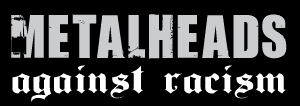In meeting with the new South Korean president Lee Myung-bak, President Bush denied suggestions that his administration has been too lenient on the North Korean government and the military dictator Kim il-Yung in forcing them to declare their nuclear facilities. In declaring their nuclear facilities and various power plant and uranium enrichment centers, North Korea will give the international community information about where they exist and how many there are in the country. It will also pave the way for a comprehensive and detailed explanation of how these nuclear power plants operate and what their intentions are for this reactivated nuclear program. The established deadline for that declaration ended last year and the agreements that were paired with that declaration are now part of an uncertain, unprogressive aura that has seemed to stagnate any immediate action or plan to stop North Korea’s secret nuclear program.
President Bush is receiving criticism because of the possibility that he is predisposed to accepting a half-hearted and misleading declaration from North Korea. As a majoritarian foreign policy matter, public opinion is inclined to place the president as the dominant figure. Currently, public opinion generally disagrees with President Bush’s foreign policies, especially concerning this issue that deals directly with America’s homeland security. The majority of the public finds the president incompetent. They believe that he is not handling the situation with the assertion and the decisiveness necessary to disable North Korea’s nuclear reactors. President Bush stands firm that his administration will make a judgment on what appropriate diplomacy should take place based on whether or not North Korea has met its obligations to the international community in terms of destabilizing its entire nuclear program, including all of the nuclear reactors and facilities that are currently stated as “not operating”.
The National Security Council has agreed to lessen demands that have an unnecessary negative effect upon a potentially new negotiated settlement with North Korea. Furthermore, the Asian Affairs committee within the National Security Council has agreed for a separate negotiation to take place apart from last year’s agreement and this new negotiation will involve only the United States and North Korea. However, within the context of this negotiation, President Bush and his advisors are giving North Korea more time to make their declaration, although the administration has not specifically stated how much time they are actually planning to grant. President Bush and his conservative supporters within the executive and legislative branches do know that they will not allow “under any circumstances” North Korea to possess nuclear weapons. They also clearly state that a negotiated settlement is the most effective way in ridding North Korea of nuclear arsenals.
North Korea tested a nuclear bomb in 2006 and it is believed that they have the technology and the materials to produce several more major nuclear bombs. Immediately after the North Korean testing, the United Nations imposed numerous sanctions on North Korea as a way to punish the country for going against orders made within the Security Council and Resolution 1695 was drafted. North Korea seems to be relatively more defiant than the United States anticipated, but the United States and other allied countries are perhaps even more determined to keep North Korea from attaining potentially powerful nuclear arsenals.
Because of You
-
The time has come to call a halt to Buffalo’s Ruminations. I have
absolutely nothing to say that is worth the energy expended to read it. Meaningless
ja...
14 years ago






No comments:
Post a Comment